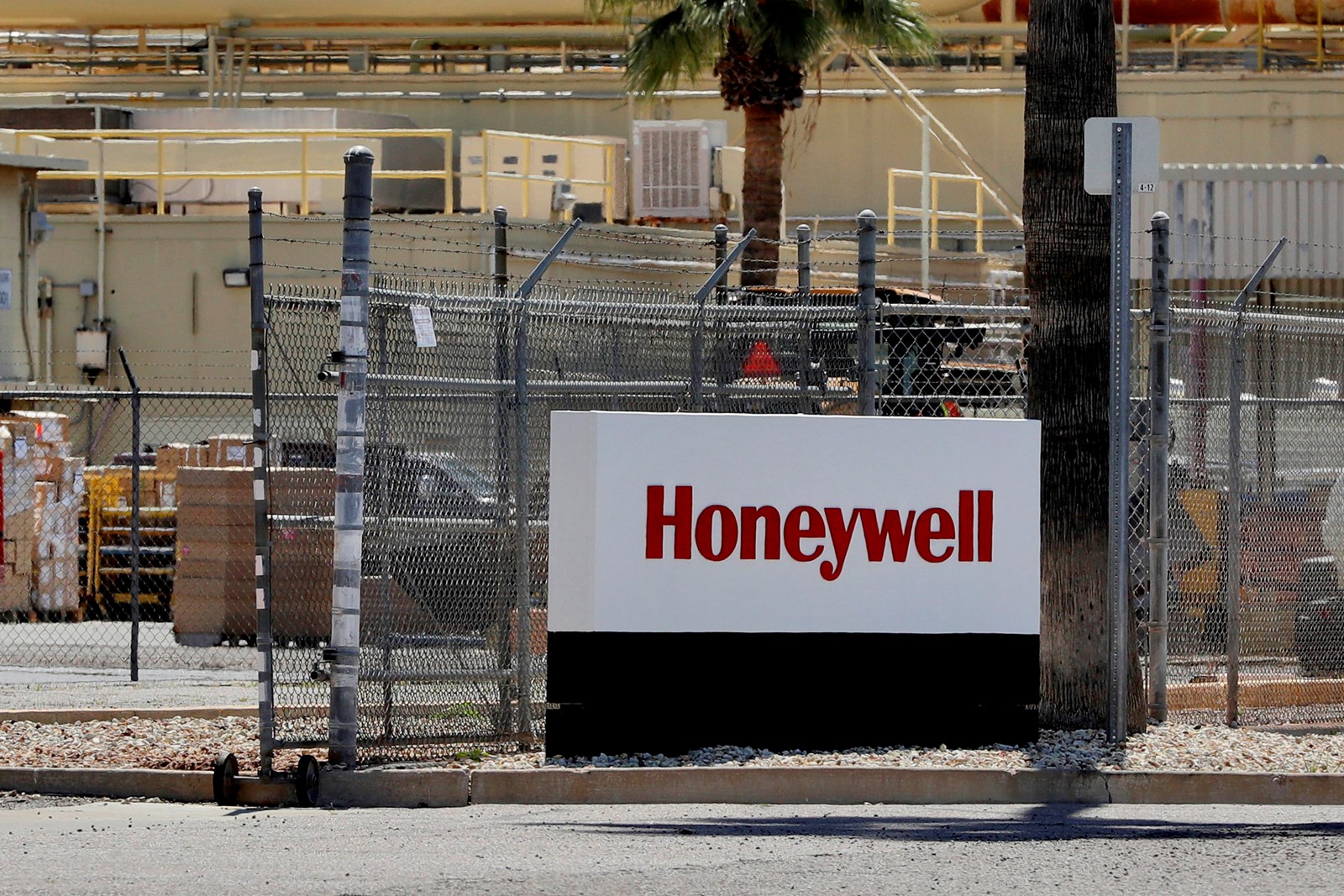
Honeywell International Inc. will split into separate publicly traded companies following pressure from an activist investor, the latest in a line of industrial conglomerates seeking a more streamlined portfolio.
The Charlotte, N.C.-based company plans to separate its aerospace division from its automation business, while also proceeding with a previously planned spin-off of its advanced materials arm. The breakup process should be complete by the second half of 2026, Honeywell said Thursday in a statement as it also reported quarterly results.
The decision comes after activist Elliott Investment Management in November revealed a $5 billion-plus position in Honeywell — its largest ever in a single stock. The investor called for a split, saying Honeywell’s conglomerate structure was to blame for underperforming shares and inconsistent financial results.
The conglomerate model had long been championed by the likes of former General Electric Co. Chairman and Chief Executive Officer Jack Welch as a way for companies to expand their reach, reduce costs and boost sales. However, over the past decade investors have turned away from multi-industry businesses, arguing that more narrowly focused companies could tailor their strategies and investments to generate higher returns.
That has proved true for companies such as GE, which is worth more today after spinning off energy and health businesses. RTX also is trading higher than predecessor United Technologies, which separated its Otis and Carrier divisions along with a merger with Raytheon.
Under Chief Executive Officer Vimal Kapur, Honeywell had already been taking steps to reshape its portfolio, including plans to spin the advanced materials division and sell its personal protection equipment division. It also completed the $5 billion purchase of Carrier Global Corp.’s security unit last year. Following Elliott’s investment, Honeywell said in December that it was exploring a separation of the aerospace business.
Separately Thursday, Honeywell forecast adjusted earnings of $10.10 to $10.50 a share for this year, falling short of the $10.94 average of analyst estimates. For the fourth quarter, adjusted earnings of $2.47 a share topped Wall Street’s estimates.
“This tepid guidance suggests Honeywell is entering the year on a slightly softer note,” Deane Dray, an RBC Capital Markets analyst, said in a note. “We fully support the separation announcement but believe the modestly soft 2025 guidance could weigh on investor sentiment in the near-term and ‘deal purgatory’ could cap upside until we get closer to the actual spins.”
Honeywell’s automation business, which makes a variety of products spanning warehouse robotics to smart energy equipment, had 2024 revenue of $18 billion. The aerospace operations, which outfit aircraft platforms, generated $15 billion in sales last year and will be one of the largest publicly traded, pure-play suppliers in the industry after the split, Honeywell said.


 PREVIOUS ARTICLE
PREVIOUS ARTICLE
